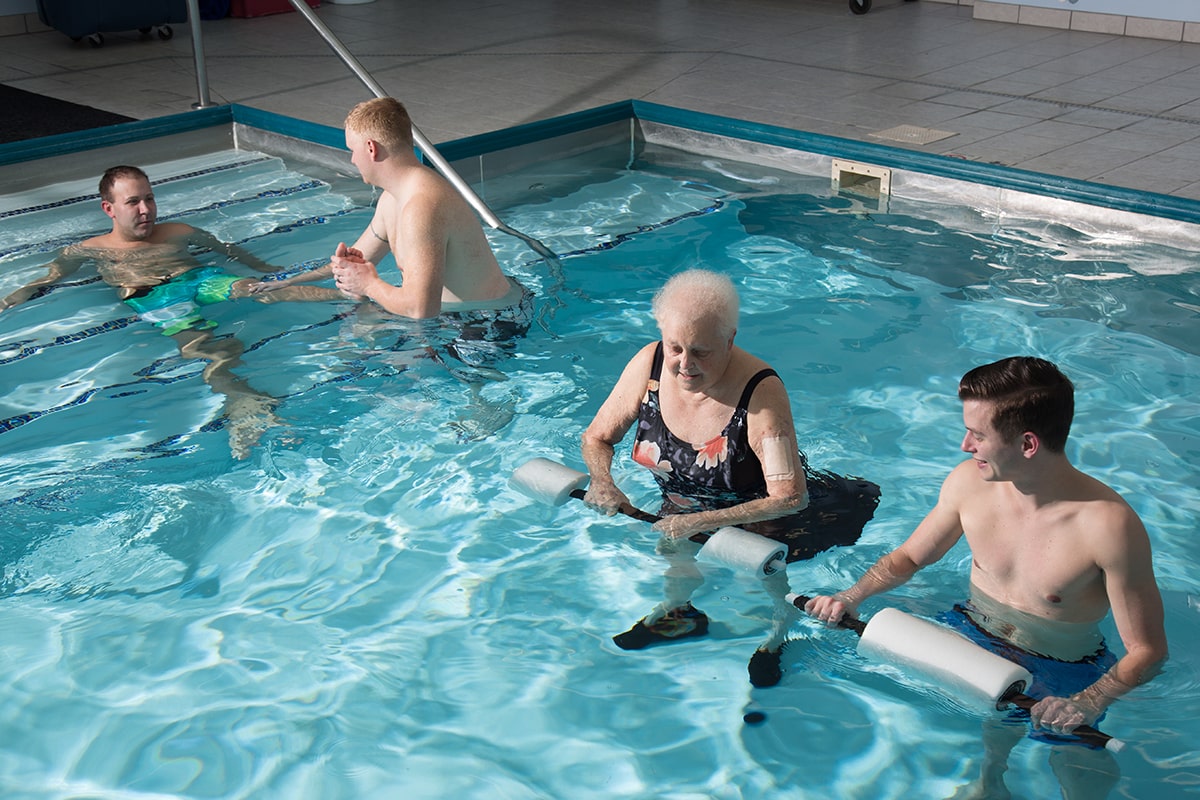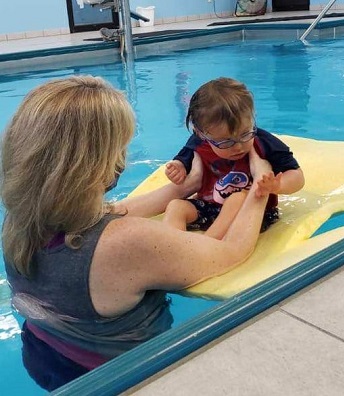Is Aquatic Therapy For You?
Could you benefit from aquatic therapy? Have you ever researched the idea of aquatic therapy because you’re curious as to what it is all about? Or have you thought about the possibility of aquatics for yourself, a loved one, or close friend?
What is aquatic therapy?
Aquatic therapy has a multitude of elements that all aid in the experience that is aquatic therapy. Elements including room temperature, humidity level, and water temperature all have a role to play in the process.
Aquatic therapy is simply said to be therapy completed within water. Just being in the water alone is working toward goals, and many patients benefit from treatments done in the water.
Who is aquatic therapy for?

Aquatic therapy is for patients both young and old with a variety of needs and diagnoses. Aquatic therapy can assist with rehab following a stroke, after a traumatic brain injury, or after joint replacement surgery. It can assist those with limb abnormalities, cognitive disabilities, cerebral palsy and other forms of paraplegia, Down syndrome and a variety of other similar difficulties.
It can aid in self-regulation for those with sensory processing disorders, attention disorders, autism spectrum disorders and most things in between.
What are the benefits of aquatic therapy?
Depending on the issues at hand, a number of benefits can result from aquatic therapy. For those with chronic pain disorders; such as fibromyalgia and arthritis, the temperature of the water in conjunction with basic stretching and strengthening can help alleviate overall pain levels.
For those post-surgery, aquatic therapy can aid in rehab of affected joints, allowing a lesser gravitational effect in completing simple stretches and exercises. The temperature of the water helps relax muscles and joints that may be inflamed, injured or replaced.
Aquatic therapy also can support those who may have paraplegia or paralysis of the legs or lower body. In the water, those patients feel weightless and are able to work muscles they may not otherwise be able to work efficiently.
Patients being treated for cancer can find relief in the water; while maintaining a sense of hope and mood, to keep up with basic strength needed for everyday challenges.
Those affected by diabetes – be it Type 1 or Type 2 – also can benefit from aquatic therapy. During their therapy time in the water, a diabetic’s heart rate and blood pressure may decrease and circulation increase.
Aquatic therapy helps children
 Through aquatic therapy, children with overall weakness can improve strength and coordination throughout their body, allowing for better body control.
Through aquatic therapy, children with overall weakness can improve strength and coordination throughout their body, allowing for better body control.
Children with sensory processing issues may feel a sense of comfort in the water due to the lessened gravitational pull and resistance of the water, which can result in improves visual-spatial skills and development.
Children who are wheelchair reliant can feel a sense of freedom and independence in the water. For those children, the water is one of the few places they feel like they are able to do a variety of tasks and move more freely. Aquatic therapy helps them with basic body control and strength.
Aquatic therapy may also aid in the development of oral-facial control, body control, and basic functional skills to be utilized throughout the day offering a different atmosphere to attempt them.
Even those with behavioral and attention difficulties can benefit from the atmosphere and process within aquatic therapy.
Comprehensive Rehab offers aquatic therapy
Comprehensive Rehab has an aquatic therapy pool at the Clinton location. For more information about aquatic therapy or any other physical therapy programs offered, contact Comprehensive Rehab today.
